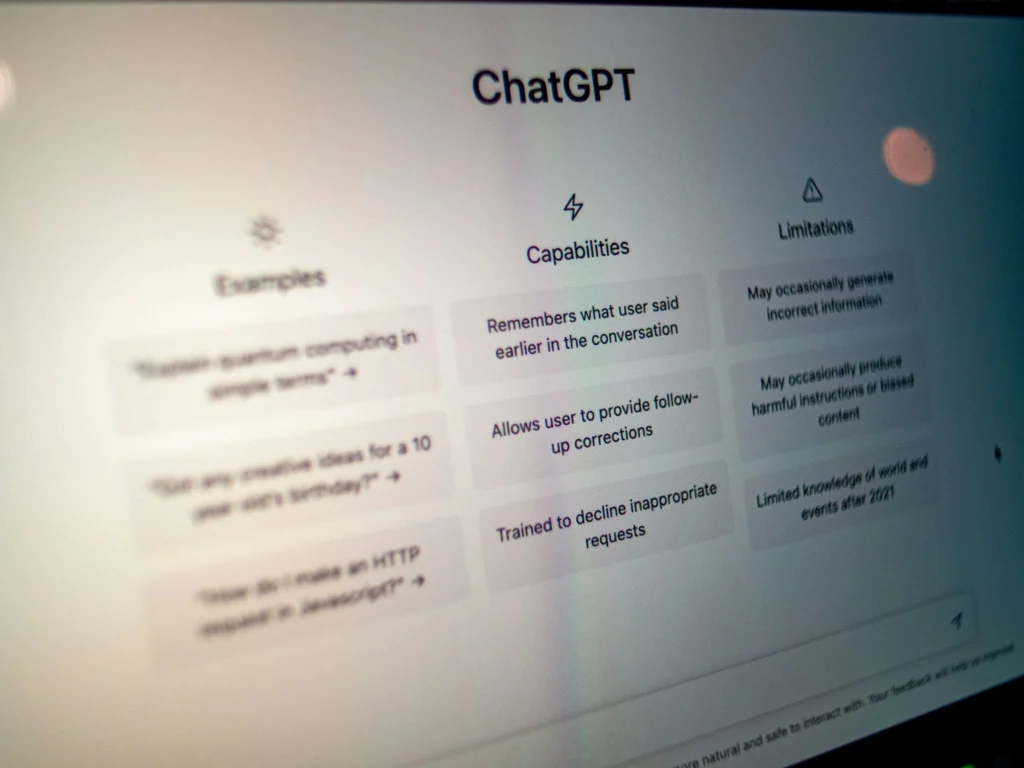Over the last 15 months, artificial intelligence (AI) has emerged as a cornerstone, revolutionizing how we communicate, create content, and devise strategies to engage our audiences. Among the myriad of AI tools that have made a significant impact, ChatGPT stands out as a beacon of innovation, transforming the way we approach marketing challenges and opportunities.

As a growth marketer with a penchant for exploring the cutting edge of technology, I’ve had the privilege of witnessing ChatGPT’s journey from its early iterations to the sophisticated tool it is today.
Recently, a wave of discussions has surged across the digital realm, questioning the intelligence and capabilities of ChatGPT. Articles from reputable sources such as Futurism, DW, and NYMag have sparked debates, pondering whether ChatGPT is, indeed, getting “dumber.” As someone who has been utilizing ChatGPT since before the advent of version 3, I find myself at a unique vantage point to weigh (at my very small scale) in this conversation.
So let’s figure out is Open.ai’s Chat-GPT is really becoming dumber…
The evolution of ChatGPT: a journey through time
My journey with this remarkable tool began in its nascent stages, when I found out that very interesting (quite technical) video from Connor Shorten about GPT2… It was four years ago:
Witnessing its growth has been both exhilarating and enlightening. The path ChatGPT has traversed since its inception is a testament to the relentless pursuit of innovation in the realm of artificial intelligence by OpenAI.
The genesis of ChatGPT can be traced back to the development of the GPT (Generative Pre-trained Transformer) models, which laid the groundwork for what would become a pivotal moment in AI. The initial versions, while impressive, offered glimpses of the potential that could be unlocked with further refinement and development. As a marketing professional, the early iterations of GPT were intriguing, yet it was the advent of ChatGPT that truly captivated my attention and imagination (I remember a conference in France where two early adopters explained how they generated a full blog, with excellent growing organic traffic where 100% of the content – from the texts, illustrations and even the writer’s pic – was AI generated).
With the launch of ChatGPT, it became evident that we were on the cusp of a revolution in how we generate content, interact with audiences, and automate tasks that once consumed a significant portion of our creative energy. Each version of ChatGPT brought with it enhancements in understanding, responsiveness, and the ability to generate content that was increasingly coherent, contextually relevant, and creatively inspiring. The leap from GPT-2 to GPT-3 was particularly monumental, showcasing a quantum leap in the tool’s ability to grasp and generate human-like text.
As I integrated ChatGPT into my marketing strategies, I marveled at its capacity to draft compelling copy, generate innovative ideas for campaigns, and even simulate conversational interactions with customers that were indistinguishable from human engagement. The efficiency and creativity it unlocked within my workflows were transformative, allowing me to allocate more time to strategic thinking and less to the mechanics of content creation.
However, the journey of ChatGPT has not been without its challenges. With each new version, while the capabilities expanded, so too did the complexity of managing expectations and understanding the limitations inherent in AI. The evolution of ChatGPT is a mirror reflecting the broader evolution of AI in marketing – a journey marked by incredible advancements, learning curves, and the continuous quest for balance between automation and authentic human touch.
In my experience, the true essence of ChatGPT’s evolution lies not just in the technological leaps made from one version to the next, but in how it has reshaped our approach to marketing. It has prompted us to rethink creativity, efficiency, and personalization in engaging with our audiences. As we stand on the brink of the next chapter in ChatGPT’s development, I remain as intrigued and optimistic as ever about the possibilities it holds for the future of marketing. The journey thus far has been a blend of innovation, adaptation, and continuous learning – a journey that I, and many others in the marketing field, are eager to continue.
A growing debate
The debate around ChatGPT’s evolving intelligence and capabilities has sparked considerable discussion within the tech and marketing communities, raising questions about whether this AI tool is “getting dumber.”

As a seasoned marketing professional who has utilized ChatGPT from its early versions, I’ve observed its development with keen interest.
Personal Opinion
I think it’s crucial to recognize that the iterative process of AI development involves periods of adjustment and refinement, which can sometimes manifest as temporary performance dips. These moments of perceived regression are not indicative of a decrease in the tool’s overall intelligence but rather reflect the ongoing journey of innovation and improvement.
Moreover, the perception that ChatGPT might be diminishing in intelligence also speaks volumes about our escalating expectations from AI technologies. As users, we quickly acclimate to the remarkable capabilities of these tools, setting the bar higher with each advancement.
This phenomenon, where yesterday’s breakthroughs become today’s standards, is not unique to ChatGPT but is a common trajectory in the rapid evolution of technology.
The debate thus underscores a broader dialogue about the role of AI in marketing, emphasizing the need for a balanced perspective that appreciates both the achievements and the challenges of integrating AI into our strategies. It highlights the importance of continuous dialogue, user feedback, and collaboration to steer the development of AI tools like ChatGPT in a direction that maximizes their potential to revolutionize marketing practices.
Let’s be frank a minute, it’s crucial for us, especially those of us in the marketing field, to recognize that the path of AI development is inherently complex and iterative. ChatGPT, with its vast potential and current capabilities, continues to be a powerful tool that, when leveraged effectively, can significantly enhance our marketing strategies and creative processes.
At work, I’m nearly using it every day and as we’ve seen the launch of Sora, not so long ago, I’m really impatient to see what will be the next evolutions and features brought by GPT5, 6… and other solutions such as Gemini). I don’t really know what people think about it but we’ve all been amazed when we wrote content for the first time using generative AI tools. Then, using it over and over, you certainly start to notice patterns (words used too often, for instance), forcing you to review your copy. But it’s fine, it makes us not becoming too lazy, too fast 🙂
Well, actually, that’s my opinion… What’s yours?

Comments